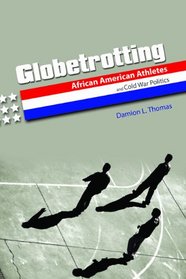Search -
Globetrotting: African American Athletes and Cold War Politics (Sport and Society)
Globetrotting African American Athletes and Cold War Politics - Sport and Society
Author:
Throughout the Cold War, the Soviet Union deplored the treatment of African Americans by the U.S. government as proof of hypocrisy in the American promises of freedom and equality. This probing history examines government attempts to manipulate international perceptions of U.S. race relations during the Cold War by sending African American athle... more »
Author:
Throughout the Cold War, the Soviet Union deplored the treatment of African Americans by the U.S. government as proof of hypocrisy in the American promises of freedom and equality. This probing history examines government attempts to manipulate international perceptions of U.S. race relations during the Cold War by sending African American athle... more »
ISBN-13: 9780252037177
ISBN-10: 0252037170
Publication Date: 9/24/2012
Pages: 232
Edition: 1st Edition
Rating: ?
ISBN-10: 0252037170
Publication Date: 9/24/2012
Pages: 232
Edition: 1st Edition
Rating: ?
0 stars, based on 0 rating
Publisher: University of Illinois Press
Book Type: Hardcover
Other Versions: Paperback
Members Wishing: 2
Reviews: Amazon | Write a Review
Book Type: Hardcover
Other Versions: Paperback
Members Wishing: 2
Reviews: Amazon | Write a Review
Genres:
- Sports & Outdoors >> Miscellaneous >> History of Sports
- Nonfiction >> Social Sciences >> Specific Demographics >> African American Studies




